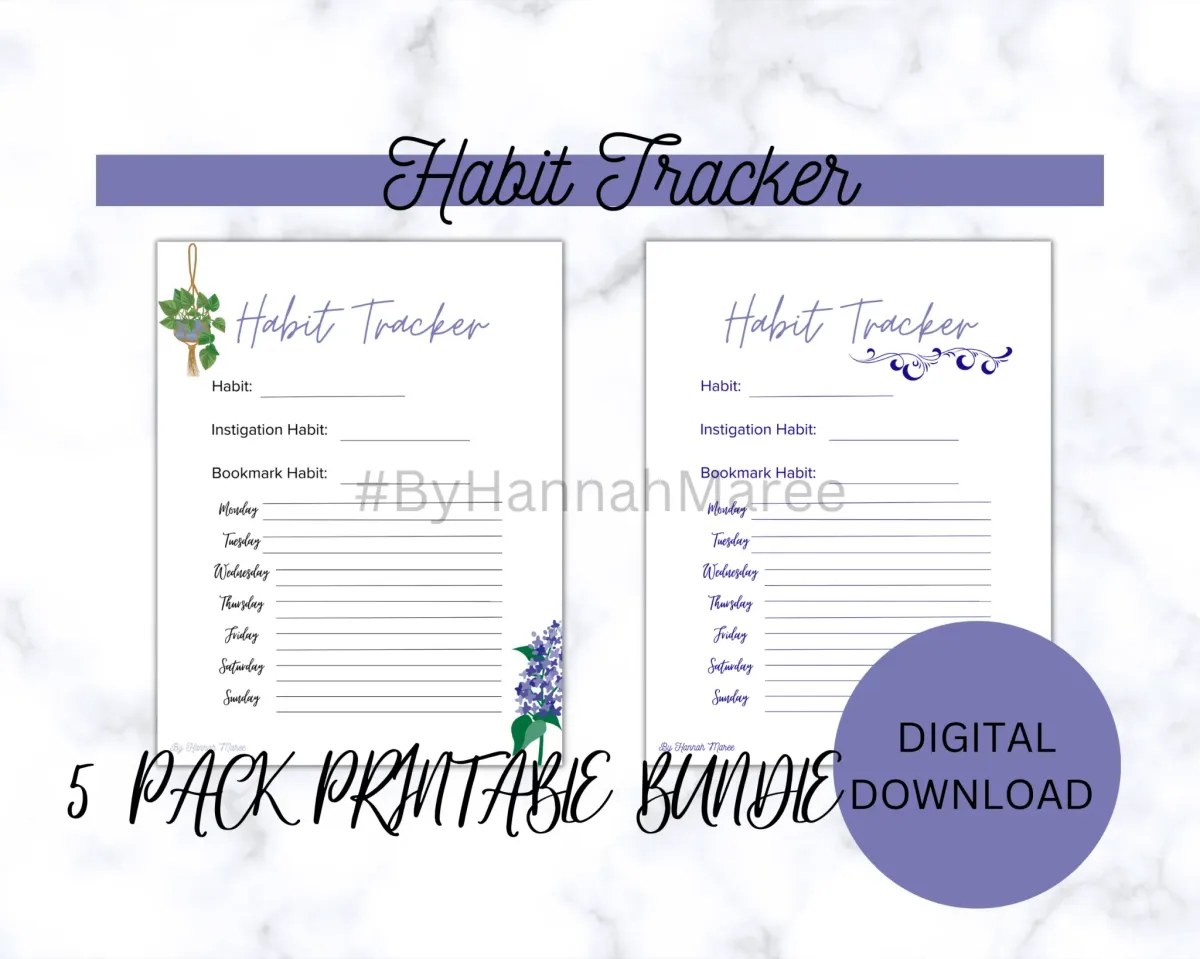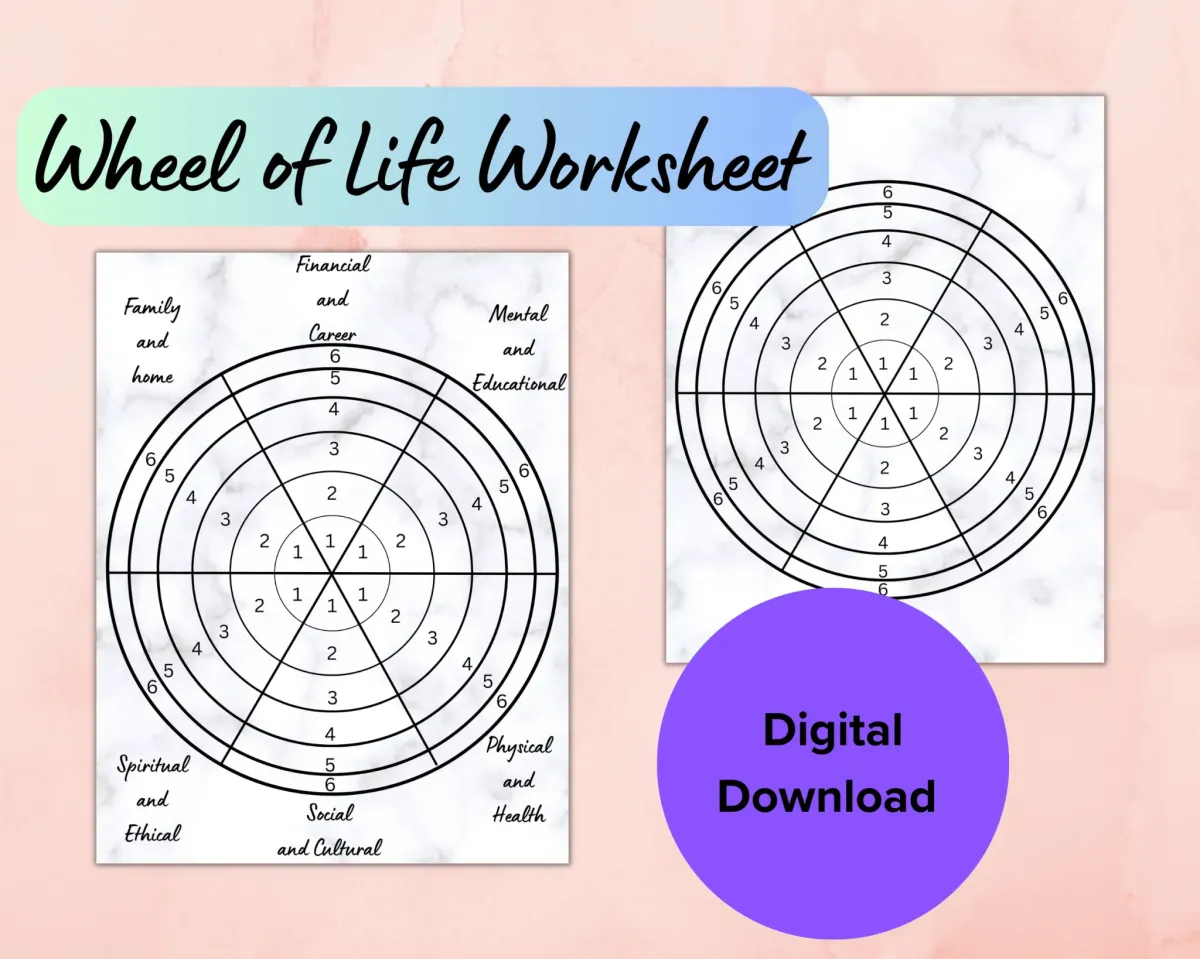Shop our printable range to aid your journey
Latest on the Blog

Exploring the types of self-care and how to implement them
In the busyness of everyday life, it’s easy to forget to prioritise our own well-being. Self-care is essential to our wellbeing. But many people don’t know what self-care really is and that there are different types of self-care. The types of self-care can be different for everyone, but generally includes: physical, mental, emotional, social, and spiritual. Some people include further areas of self-care, however I believe these are the key areas. Keep reading to discover my best tips to implement these types of self-care into your daily life.
Importance of Self-Care
Before diving into the various types of self-care, its important to understand why it’s crucial to prioritise taking care of ourselves. Self-care goes beyond indulgence and a bubble bath; it is an actionable way to safeguard our overall well-being. By practicing self-care, we can:
Reduce stress;
Better our mood and emotional intelligence;
Boost our physical health and energy levels;
Strengthen our relationships;
Improve our productivity and adaptability.
Physical self-care
Physical is the first type of self-care. Our mental wellbeing can only be as good as our physical health. If your body is unhealthy and lacking energy because you are not fuelling it properly, your brain is also not getting the right fuel.
The brain needs carbohydrates, fruits and vegetables in order to function at its full potential. It is also important to drink enough water, exercise and make sure you get 7-9 hours of sleep per night.
Physical health is something that I have struggled with. I have never enjoyed exercise and the thought of exercising actually makes me anxious. That is, anxiety about exercise that I hate, makes me feel sick and that I don’t enjoy.
I am slowly starting to heal the anxiety that exercise used to give me. I have done this by reframing my definition of exercise. I used to think that exercise had to be high intensity, hard and for the purpose of losing weight, otherwise it wasn’t worth it. However, I have learnt that exercise is about keeping your body healthy and mobile so that you can best enjoy your life. Exercise also doesn’t have to be hard and something that you hate doing. Just do what you like!
Even if its low intensity, you are still moving. And low intensity can still be a tough workout! I now like lifting weights, riding my bike, rock climbing and swimming. These activities are exciting for me and make me feel good instead of anxious. Find some activities that make you move and remember; you don’t have to do the same thing every day. Try something new and make the most of exercise!
Mental self-care
Caring for our mental well-being is crucial for our wellbeing. This is the second type of self-care. There are a couple of ways you can improve and protect your mental wellbeing.
Practicing hobbies or trying new hobbies and creative activities is essential for mental self-care. Hobbies are activities that you enjoy and are excited about doing. It is essential that you have joy and excitement in your days.
Being mindful in everyday life is also important for mental self-care. Being mindful doesn’t have to mean meditating if that does not work for you. Practising gratitude, having intention throughout your day and noticing the beautiful things around you is a great place to start.
Emotional self-care
Emotional self-care involves acknowledging, understanding, and nurturing our emotions.
This follows on from mental self-care because to be emotionally healthy we need to practice checking in with ourselves. This starts with practicing being mindful every day. Start checking in with yourself by stopping throughout the day and acknowledging your emotions. As you practice this, you will be able to stop and acknowledge how you are feeling and why when you are upset. This will give you greater emotional intelligence and self-awareness.
After you acknowledge the emotions you are feeling, doing a ‘body scan’ is a good way to accept the emotion, heal and mindfully self-soothe. You can complete a body scan by starting at your head, recognising how it feels and then scanning down the body while acknowledging how each part of you feels.
Another method to try is to sit with the feeling and explore it like a curious scientist. What colour is the feeling? What does it feel like? What is its shape? What is its texture? Is it hot or cold? This seems silly, but is very effective at creating distance from the emotion while also sitting with it.
Sitting with the emotion is important because when we are feeling emotions that do not feel good, our brain thinks we are in flight or flight mode and that the feeling is dangerous and something that we need to run away from. So sitting with the emotion gives our brain time to notice that the emotion is not dangerous and that we can handle it.
Social self-care
Building and nurturing positive relationships is an essential aspect of self-care. Humans are social animals and need relationships with other people.
To add social self-care into your week, make sure to prioritise quality time with your friends and family and engage in activities with them that you enjoy.
However, it is important to note whether you are an introvert or extrovert. I am an introvert and so I know that being social drains my energy. Therefore, its easier to plan my social interactions to make sure I am being social enough, but also having enough time to myself to recharge.
Also consider what boundaries you feel are important. Boundaries are limits of how you want people to treat you. Your boundaries are important to know. But be careful with them. Boundaries are ‘shoulds’ that you think other people should follow. This does not mean that other people will follow them or that you can make people follow them. Boundaries only dictate how you act and respond when a boundary is crossed.
For example, if someone calls you a nickname that you do not like, you could ask that person politely to please stop calling you that and explain that you don’t like it. That person could respect that boundary or not. If they continue to call you that nickname, you can choose to respect the boundary yourself and remove yourself from the situation. Another example is that I know I need time alone to recharge so I respect that boundary and give myself time alone.
Boundaries do not give you a reason to be disrespectful or hateful towards someone that doesn’t follow them. Boundaries give you the opportunity to respect yourself.
Spiritual self-care
Spiritual self-care doesn’t have to be about religion. Though if you are religious and if that is an important part of your life, it is important that you make time for it as part of your spiritual self-care.
Spiritual self-care when you are not religious can look like having moments of reflection, meditation, being present in the moment, journaling, or reconnecting with nature. Any activities that give you a deeper sense of purpose and direction.
Check out our Instagram
© 2023 Freedomkit | Powered by Freedomkit.ai






